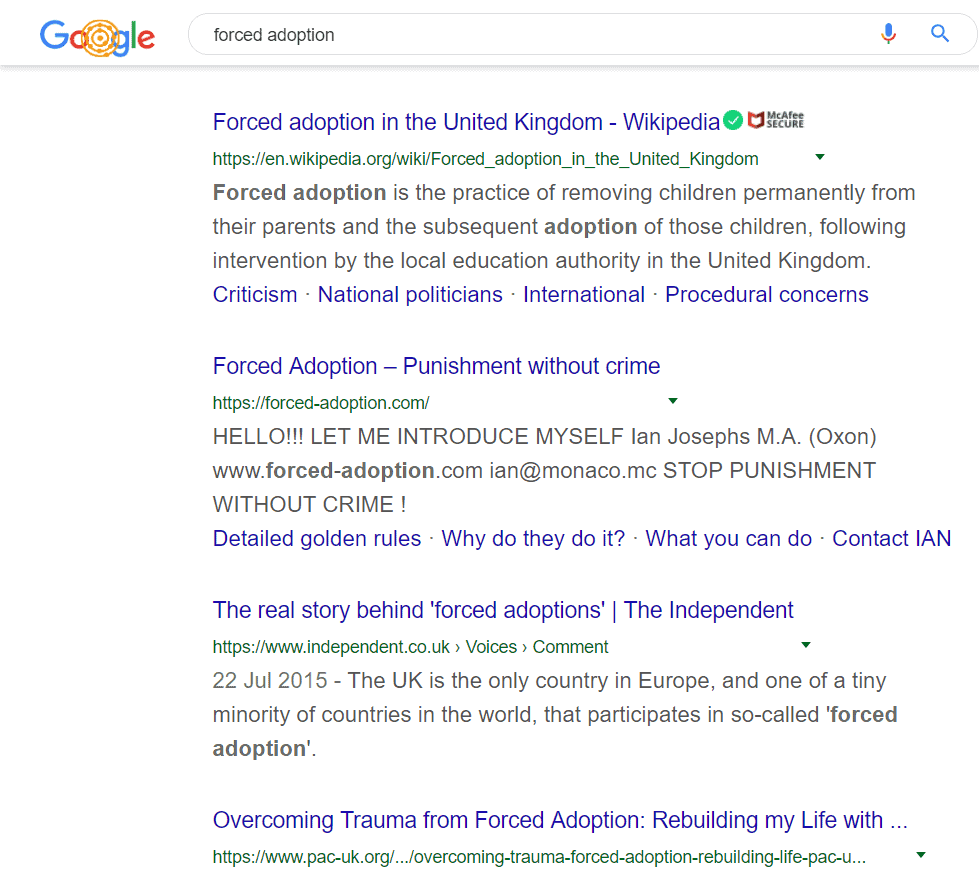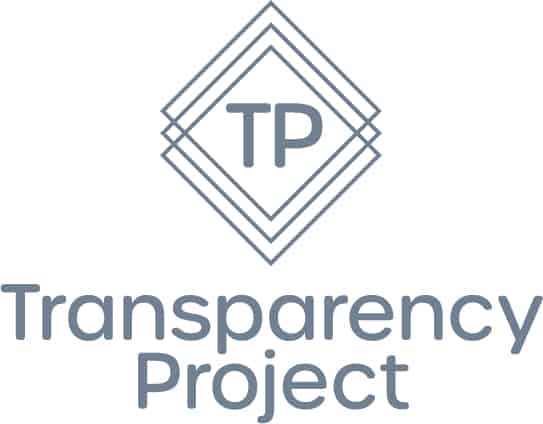On the 4th of April, BBC Radio 4’s Woman’s Hour dedicated much of their podcast to the issue of repeat removals of children into the care system. As a mum who had my own baby taken at birth, after a previous set of public law proceedings in respect of my elder children, this was difficult, but essential listening. The BBC later covered the podcast in an article which you can read here.
Jenni Murray, presenting, spoke at first of the shocking figures; 75,420 children currently in the care system in England – the highest number recorded in the past 25 years – and a “doubling of the numbers of babies being taken into care at birth in the past decade”, a rise of 4% in the number recorded last year. An article published earlier this year details the “Rise in children taken into care pushing 88% of councils over budget”. Cuts to family support services and the widespread closure of SureStart centres are all continuing to affect families across England.
Jenni then turned to the issue of pregnant mums who flee the country to escape from social workers, and the possibility of losing their babies at birth. She spoke with “Zara” (not her real name), a mum who had had two children previously removed by the local authority and was pregnant with her third child. Zara had experienced a difficult childhood with what she described as “an abusive mother” resulting in a brief entrance into foster care herself. Zara then went on to have a child at the age of 16, and another at 18. Both of these children were subsequently removed by social workers over concerns around “abusive relationships”.
At 22, Zara fell pregnant again. When asked by the interviewer why, after two previous removals, she chose to get pregnant again, Zara said:
“When you’re in a situation where you’ve had children removed, it’s like losing any child. You need to be a mother, and you have a child-shaped hole in your heart… there’s only one thing that will fill it… I was living in hope”
Zara worked with the local authority from being 22 weeks pregnant until she was 37 weeks. At this point, she said that the local authority weren’t giving her any indication of what might happen to her unborn child. However, they had stated their concerns; previous removals, abusive relationships, isolation and that Zara had been suicidal in the past.
Zara became fearful, not knowing what she may be facing. Having been in this position myself (though a lot earlier in my pregnancy), I can empathise. She did exactly what I did; she turned to social media for help.

If you Google “forced adoption”, you receive almost 55 million results. Some are newspaper articles, law sites, social work sites, or blog posts – but the second result down is the website of one “Ian Josephs”, who, it is heard within the podcast, describes “social workers, judges, guardians, experts and hangers-on” as “a load of scumbags who should be locked up”.
Zara, like me, found secret groups on Facebook, and in one, like me, she asked for guidance and advice from the other members. What would happen to her baby?
Run
She was told that she wouldn’t be able to keep her child and that she should leave the country to avoid her baby being taken. She was told that a man called Ian Josephs would help her by paying for her tickets. She was contacted by a woman who offered her a “package; a new life being sold”. Zara was told she would have accommodation, a job, a support network.
I was told the same. I contacted Ian Josephs directly early on in my pregnancy. I emailed him at 4am UK time on a Sunday morning, and by 8.30am he had called me, telling me to get out of the country and selling me the same “package”. I was told to go to Northern Cyprus where “they (social workers) couldn’t touch” me. I had no job, no passport, no savings, and older children here – one living with me. Nothing was asked about or checked on me or my background – it was just assumed that I was a victim of “the system”. Ian Josephs can be charismatic and charming – and I was frightened and vulnerable.
Ian Joseph’s website gives out, in my opinion, some worrying advice. He speaks with authority and ensures his Oxford University degree is prominently placed. In his “golden rules” he tells readers never to ask for help from social workers, even if their child has been sexually abused. If found in another country, Ian advises children should be told to warn airport staff that the social worker has swallowed drugs, or intends to blow up a plane. He advises parents never to sign anything, never let their children go into foster care and to sack their own lawyers, citing that “Legal aid lawyers are professional losers”. He quite blatantly states he will pay for pregnant women to get out of the country. There are many messages from parents who have apparently taken Ian’s advice, fled and, allegedly, never been bothered by “wicked” social workers again.
Reading this as a person not in the throes of pregnancy, and not fearful of having your unborn baby removed – it seems absurd. Why on earth would you flee the country, leave behind everything you know and all of your support whilst heavily pregnant?

But, as Claire Mason, a Senior Research Associate at the Child and Family Justice Research unit at Lancaster University explains; these women are extremely vulnerable. In the latest study “Born into Care” published by the Nuffield Foundation, of which Claire was involved, it was found that 63% of women were teenagers during their first pregnancy, and then had a quick subsequent pregnancy when their first child was removed. Claire speaks about these mothers who then experience a different type of grief, where the child hasn’t died but isn’t with their mother coupled with the shame and stigma of being deemed “not good enough”. This can sometimes be known as “disenfranchised grief”.
Zara experienced the same. Unlike me, she did leave the country and went to France. It was “a matter of four hours” from her, at 37 weeks pregnant, having no thoughts of leaving the country, to receiving this advice from social media, speaking with Ian Josephs and actually being on her way. Zara talks about feeling she was going towards “a new life”. That “nothing was going to stop her”. She talks about being sold “a nice-sized house, with room for everybody”.
The BBC report tells us the reality : Zara was picked up from the station by a woman she had had contact with via Facebook and taken to a run down barn. She was locked in a room with another pregnant woman, her partner and their two-year-old child. She was made to hand over her passport and bank card, and her account was cleared out. Other women who fell prey to this promise of a “new life” later reported being shouted at, made homeless and living without electricity during the winter months.
4 days after her arrival, Zara escaped. She hitchhiked, went to stay with a friend and she gave birth to her child. The French social workers were happy with her care of her daughter and Zara’s case was swiftly closed.
After a year, Zara came back to the UK. Her baby was taken shortly afterwards. No further information was given but she rightly asks :
“How can I be a good parent in one country, but not another?”
“It is clear more parents are being given advice to run. I wouldn’t have seen this 10 years ago. From what I’ve been told, people are at risk of being taken advantage of financially and sexually. It is extremely worrying. Every European country has a mechanism for non-consensual adoption; only the UK uses it with such enthusiasm. Families have the perception that places like France are perceived as more sympathetic and supportive – so they flee.”
– Sarah Phillimore, a family law barrister and author of Child Protection Resource
Zara reflects many of the women in the “Born Into Care” study. She was young, had experienced early trauma, was socially isolated and – like 40% of the women in the study – was a ‘Looked After Child’ herself. Where was her corporate parent?
In the Government’s own “Teenage Pregnancy Prevention Framework”, published in May 2018, care leavers are three times more likely to become pregnant before the age of 18. What package of support is given to children in the care system to educate them on how to become a “good enough” parent themselves?
Pause for thought
Sophie Humphreys founded Pause because she, as a child protection social worker, had seen for herself the lack of support for mothers trapped in a cycle of repeat removals. Sophie speaks about “deeply entrenched issues” that often run across generations. Pause offers both practical and emotional support to mothers to break that cycle, but does require the women to take Long Acting Reversible Contraception (Larc) during the whole of their time on the Pause programme. Sophie feels that the “teachable moment” for women like Zara is not during pregnancy. However, Claire Mason disagrees and feels that women are “at their most motivated” for change during pregnancy. Both agree that a trauma-informed approach which acknowledges the stigma and shame the women have experienced is key to lasting change.
Pause, which has been funded by the Department of Education Innovation Fund, the National Lottery and more is not the only programme of its kind, but it is the only one to receive such generous funding and media exposure. There has been some disquiet around this and journalist Louise Tickle has previously explored this in more detail here.
Pause, and other programmes of a similar ilk are not nationally available and so support is very much a “postcode lottery”. Requiring a woman to take Larc as a precursor to access services may also prove to be discouraging.
Inhumane
Jenni ended the podcast by taking some calls and emails from listeners. One such listener, Peter, said “why can’t both the child and the mother be taken into care, if need be? They should be kept together, or problems continue or more are created. It seems inhumane to care for the child, but not the mother.”
So, what is the answer to this intractable problem? How do we break the cycle, particularly for the most vulnerable in our society? This was an excellent podcast and essential listening for all involved in child protection. However, the question, for now, remains unanswered.

It starts with re-education. Re-education of the children’s social work profession. If you want to nurse children, you do a three year degree specifically tailored to nursing children. If you want to teach children, you do four years of uni education tailored to the child. Many current CSWs only ever did a 2 year combined adult & children’s social work diploma. And those 2 year diploma SWs are in many instances now holding management positions. That to me menas that people who are making decisions to take children away from parents – the most serious event which could ever happen to a child – are in reality less well trained to actually do so, than any nurse or teacher is to fulfil their role helping children.
1. Training for CSWs should be a four year CHILD CENTRED uni course, with the first two years covering child development, child psychology, covering children’s physical, emotional and psychological developemnts and health from pre natal to adulthood. During these two years there should be mandatory placements in relevent child centred NHS and educational settings. In the third and fourth years study adult mental health, disabilies, and sociological issues in relation to parenting, as well as the legal issues and law, again with placements each semester in relevent real life scenarios relating to each topic. And of course completion of the obilgatory ‘reflective journal’ for each module. Post degree professinal development in post, should involve compulsory study of the most recent research related to child protection, fostering, adoption, life in care, and residency and contact issues.
Our children deserve nothing less.
2. Removal of a child should be a last resort when all else has failed unless the child is in imminent danger.
Section 17 of the Children’s Act should be implemented to its fullest to support the child remaining with the family, (which it was designed to do). As for the ‘lack of resources’ argument, that doesn’t wash with me. All LAs have been suffering fiscal problems in the last few years and yet a lot of LAs are getting Outstanding ratings from Ofsted whereas others are getting (often repeatedly) Inadequate ratings. It’s about commitment and priorities not soley about available finances. And, timely interventions has been evidence to show savings in other areas.
3. Parents should be fully engaged and involved at ALL stages of social services involvement.
All meetings/interactions between social workers and children and or parents outside of the LA offices should be recorded by body cams, and, within the LA by in house equipment.
All hand written case notes to be retained by the LA after being input into the IT systems, until the child reaches maturity.
4. Child protection meetings being convened to discuss the permanent removal of a child from its family and into care should be of a standard equivelent to Mappa level 3, with representatives from all agencies involved and any final decision must be by full consensus of all representatives. Such meetings should be fully minuted and audio recorded.
5. Placement of a child within its wider family on a SGO be fully considered and evaluated in all cases
6. Before an application is made to court for a non consenual adoption order the case to be reviewed by a panel of three IROs who are fully independent of current or past ties to that LA, with a requirement that all three are in agreement that forced adoption is the only nad best option for the child, before it can be progressed for court action.
7. Evidential standards in court to be on a parity with the criminal court.
8. Allow children to give evidence to court, either in person or by video link.
9. In any public or private family law case, if the police are involved in a criminal investigation of a parent regarding harm to the child, then it be a requirement that the investigating police officer be required to attend court and update the judge on the police findings. Amongst other things this should highlight/rule out police vs social worker disparities in the case.
10. All cases of perjury committed by anyone involved in the case be considered as an act of harm to the child, and be pursued as a criminal case.
11. Judges as well as the SW be mandated as part of their ongoing professional development, be required to be familiar with the latest research in child protection such as the research by Prof Eileen Munro (child protection reform), Prof Andy Bilson (repeated removal of siblings), Prof Liz Trinder (what makes contact work), Prof Lauren Devine (rethinking child protection).
There are not many SW or managers around with the 2 year Dip. Most have a 3 year degree or Masters in Social Work nowadays. We all have placements too, granted not all ideal but they must be statutory. I take your point about CPD. We all have access to further training for development but no time to complete it. We end up typing reports in the evening to keep on top of casework.
Unanswered Seems to be the preferred position for the Child protection Sector of Local Authorities. especially Adoption because thats where the Money is.
My local authority do not like me.
I had a social worker sit on my sofa, drinking my coffee telling me to ‘stop using so many big words; I don’t understand them and they are hard to spell.’
She would do anything she could to provoke me. She also did anything she could to provoke my parents, (She would go to their house in very low cut tops and ‘jiggle’ her ‘goods’ in my Father’s face.)
She had such a ‘far away’ look; that I was convinced she had to be on drugs.
I could have ‘run’; I had no orders on me and I don’t hold a UK passport. But I didn’t.
I never advise anyone to ‘run’.
TC
Hi TC,
Thanks for your comment. I’ve taken out the video for legal reasons – apologies. Annie
My friend has a child in care, but her child is living with her father, my friend’s estranged husband. Children’s services have manipulated, lied, deliberately twisted events to accuse my friend of being a bad mum, acted outside their legal remit, effectively ignored the ombudsman, refuse to go to the second stage of the complaints process, even though they are obliged to by law. They are now manipulating the lockdown situation to make it hard for my friend to see her child. They will only accept one email every two weeks from my friend. When they reply to her concerns about her child it is mainly meaningless drivel, more accusations, or doublespeak. I would trust an ISIS terrorist or a Wafen SS trooper more than these so called professionals.